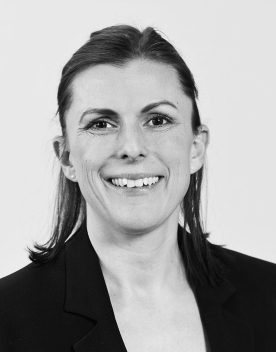In this two-day symposium, we will explore the scientific interface between neuroscience and endocrinology. We will shed new light on how the brain orchestrates metabolic homeostasis in health and pathologies like obesity and type 2 diabetes, and how patients with altered brain function are predisposed to developing cardiometabolic disease. In addition, we will decipher how peripheral signals affect the brain’s ability to maintain energy homeostasis, and how exploitation of this knowledge can lead to future therapies.
Importantly, this symposium strengthens the intersection of two flagship educational institutions in Denmark, namely the Danish Diabetes and Endocrine Academy (DDEA) and Neuroscience Academy Denmark (NAD) to ultimately lead to more interdisciplinary research and training activities.
Join us for a two-day symposium that explores the critical interface between neuroscience and endocrinology!
The program will examine the brain’s central role in regulating metabolic balance, with a particular focus on its influence on health and its implications in conditions such as obesity and type 2 diabetes. You will gain a deeper understanding of how alterations in brain function can increase susceptibility to cardiometabolic disorders, as well as new perspectives on how peripheral signals affect the brain’s ability to maintain energy homeostasis. Together, these insights will shed light on mechanisms of disease and point toward potential avenues for future therapeutic strategies.
Specifically, scientific sessions include:
You are invited to present your research at the symposium. Short talks, posters and poster presetations will be arranged based on selected abstracts (please see guidelines under “Abstract Instruction”). The organisers will select the oral presentations based on submitted abstracts.
All who have signed up with an abstract will present their research in an open poster session. More information will follow after the registration deadline.
There will also be additional, excellent opportunities to expand your professional network and seek out possible future collaborators within different scientific fields as well as across national and international borders.
Confirmed speakers:
Organisers:
The symposium is jointly organized by Neuroscience Academy Denmark and the Danish Diabetes and Endocrine Academy.
Organisers of the scientific programme:
The symposium is intended clinicians and researchers at all levels working within any field of neuroscience and endocrinology in Denmark and abroad. However, we also welcome undergraduate students, representatives from the life science industry and the private sector and interested editors at scientific journals, to attend.
We encourage early career researchers to submit an abstract for poster sessions. Researchers who submit an abstract may be selected to take part in the programme with a short talk.
All participants are selected on a first come, first served basis. However, if the symposium is overbooked, participants who submit an abstract will be prioritised for attendance.
Please note that you are not guaranteed a seat at the symposium if you do not meet the target group requirements. Priority is given to participants employed at research and health institutions or in the life science industry in Denmark and abroad. If the event is overbooked, the DDEA reserves its right to select participants based on the defined requirements.
Dinner registration
The NAD and DDEA organises a networking symposium dinner on 28 May 2026. Participation in the dinner is free of charge. Please sign up for the dinner upon registration, and indicate whether you have any dietary requirements.
Latest cancellation date & no-show fee
Please note that it is free of charge to participate in the event however the DDEA will charge a no-show fee of 1000 DKK if you do not show up and have not unregistered from the event by 7 May 2026 23:59.
Abstract guidelines:
Be sure your abstract contains the following information and adheres to the following formatting guidelines before submission:
You may download the template here
The abstract should be max 1500 characters incl. spaces and written in Arial 10.
The body of the abstract contains the following content:
No images, figures, charts or tables should be included in the abstract.
Please proofread carefully before submission and submit a word file and please name the file that you submit with your name.
Size of poster: A0 or A1 – width max. 1 m/height max. 1.25 m (“Portrait format” is visually preferred)
Please log in to sign up for our event.
Please register and log in to sign up for our event.

Pernille Bruun Nielsen
Education and Networking Coordinator
Pernille.bruun.nielsen@rsyd.dk
+45 24 66 98 01
EAN: 5798 0022 30642
Reference: 1025 0006
CVR: 29 19 09 09